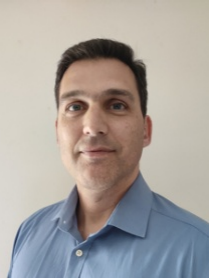Submission Deadline: 20 September 2025 (closed) View: 1460 Submit to Journal
Prof. Ivan Miguel Serrano Pires
Email: impires@ua.pt
Affiliation: Instituto de Telecomunicações, Escola Superior de tecnologia e Gestão de Águeda, Universidade de Aveiro, 3810-193, Águeda, Portugal
Research Interests: Ambient Assisted Living; Human Activity Recognition; Signal Processing

Dr. Paulo Jorge Simões Coelho
Email: paulo.coelho@ipleiria.pt
Affiliation:
1. School of Technology and Management, Polytechnic University of Leiria, 2411-901 Leiria, Portugal
2. Institute for Systems Engineering and Computers at Coimbra (INESC Coimbra), 3030-290 Coimbra, Portugal
Homepage:
Research Interests: Robotics, Industrial Automation, Assistive Technologies for Medical Applications, Deep learning, Computer Vision

This special issue focuses on the revolutionary contribution of computational models and artificial intelligence (AI) to the development of precision and personalized medicine. AI-driven technology and computational tools are transforming disease diagnosis, treatment, and prevention in response to the increasing demand for patient-specific healthcare solutions. These developments facilitate individualized treatment plans, early disease identification, and optimal drug development by combining genetics, bioinformatics, predictive analytics, and real-time monitoring.
The Special Issue seeks to showcase state-of-the-art studies, creative approaches, and useful applications that use AI and computational models to enhance healthcare delivery. It encourages submissions examining a range of subjects, including wearable health monitoring, digital twins for individualized therapy, AI-driven drug development, machine learning for diagnostics, and multi-omics data integration. It also promotes conversations about the moral, legal, and regulatory issues surrounding the use of these technologies in healthcare settings.
This Special Issue aims to hasten the implementation of AI and computational techniques in healthcare by bringing together interdisciplinary research and encouraging collaboration between scientists, physicians, and engineers. Its ultimate goal is to help create next-generation healthcare solutions that improve patient outcomes, lower costs, and guarantee that everyone worldwide has fair access to precision medicine.


 Submit a Paper
Submit a Paper Propose a Special lssue
Propose a Special lssue